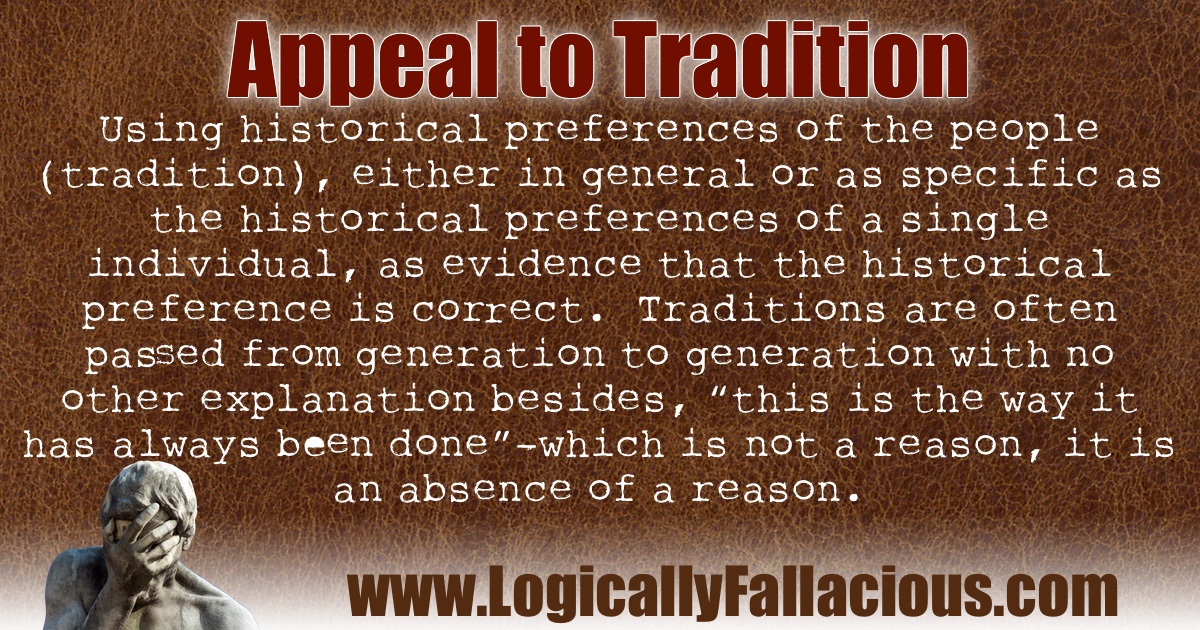(also known as: appeal to common practice, appeal to antiquity, appeal to traditional wisdom, proof from tradition, appeal to past practice, traditional wisdom)
Description: Using historical preferences of the people (tradition), either in general or as specific as the historical preferences of a single individual, as evidence that the historical preference is correct. Traditions are often passed from generation to generation with no other explanation besides, “this is the way it has always been done”—which is not a reason, it is an absence of a reason.
Logical Forms:
We have been doing X for generations.
Therefore, we should keep doing X.
Our ancestors thought X was right.
Therefore, X is right.
Example #1:
Dave: For five generations, the men in our family went to Stanford and became doctors, while the women got married and raised children. Therefore, it is my duty to become a doctor.
Kaitlin: Do you want to become a doctor?
Dave: It doesn’t matter -- it is our family tradition. Who am I to break it?
Explanation: Just as it takes people to start traditions, it takes people to end them. A tradition is not a reason for action -- it is like watching the same movie over and over again but never asking why you should keep watching it.
Example #2:
Marriage has traditionally been between a man and a woman; therefore, gay marriage should not be allowed.
Explanation: Very often traditions stem from religious and/or archaic beliefs, and until people question the logic and reasoning behind such traditions, people who are negatively affected by such traditions will continue to suffer. Just because it was acceptable in past cultures and times, does not mean it is acceptable today. Think racism, sexism, slavery, and corporal punishment.
Exception: Victimless traditions that are preserved for the sake of preserving the traditions themselves do not require any other reason.
Tip: If it weren’t for the creativity of our ancestors, we would have no traditions. Be creative and start your own traditions that somehow make the world a better place.
